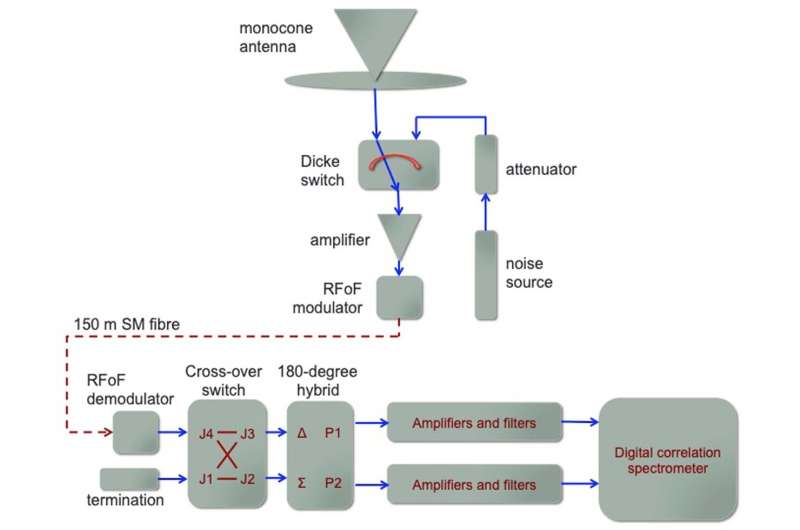March 1, 2022 report
Experiment on reservoir in India fails to find evidence of cosmic dawn

A team of researchers with the Raman Research Institute in India has attempted to replicate the results of the EDGES experiment conducted four years ago, where a team in Australia claimed to have found evidence of the cosmic dawn. In a paper published in the journal Nature Astronomy, the researchers outline their approach and why they believe its failure casts doubt on the efforts by the EDGES team.
In 2018, a team of radio astronomers working in the Australian outback used an instrument they called the Experiment to Detect the Global Epoch of Reionization Signature (EDGES) to find evidence of the cosmic dawn—light from the oldest stars in the universe. Their device was meant to detect changes to interstellar hydrogen due to ultraviolet light emitted from the first stars. Such changes, theoretically, would involve hydrogen changing from a transparent state to slightly opaque. When their device recorded seeing the changes they were looking for, the team claimed they had found the first evidence of the cosmic dawn.
Since that experiment four years ago, no other team has been able to replicate the results of the team in Australia. In this new effort, the researchers tried again, this time by placing a device called the Shaped Antenna Measurement of the Background Radio Spectrum (SARAS) on the surface of a reservoir in India. The site was chosen specifically—the reservoir had to be one with just the right salinity to shield the device from underground background radiation. After finding the right reservoir, the researchers set up their device and set about looking for evidence of the cosmic dawn, but they found none. The group claims that their failure shows that the results by the team in Australia were faulty. They suggest the earlier findings were likely due to faulty equipment.
The work by the team in India, despite their claims, has not ended the debate. Several other teams are still in the process of setting up their own experiments to see if they can find evidence of the cosmic dawn.
More information: Saurabh Singh et al, On the detection of a cosmic dawn signal in the radio background, Nature Astronomy (2022). DOI: 10.1038/s41550-022-01610-5
Journal information: Nature Astronomy
© 2022 Science X Network





















